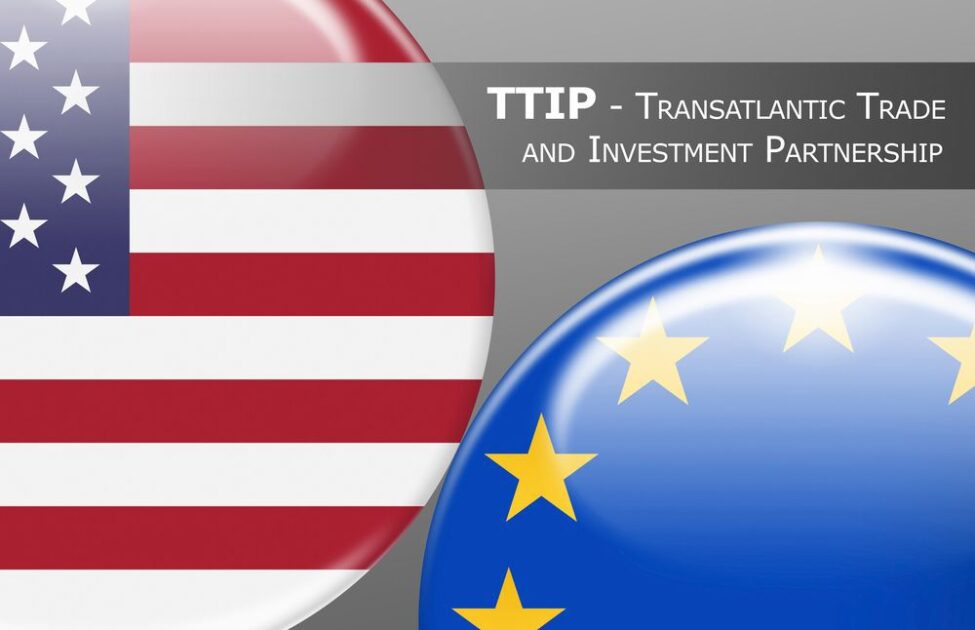Transatlantic Trade and Investment Partnership (TTIP) and how it affects you as an EU Citizen
Democracy TTIPing over the edge

Much of the discourse surrounding the TTIP is boring, complex and mysterious. However, it is important, as citizens of the EU, to know just what the TTIP is, what it entails and how it will affect us in everyday life.
History
TTIP is an acronym for the Transatlantic Trade and Investment Partnership (TTIP). It is a free trade and investment treaty that has been conducted between the USA and the EU since last February. This was followed by the first round of negotiations between the European Commission, under EU Commission President Jose Manuel Barroso, and US officials in July of the same year.
Aim
The aim of TTIP is to promote multilateral economic growth for the world's two largest economies. It would create the world's biggest free trade zone resulting in greater regulatory harmonisation and a boost for business. Together the US and EU generate a third of the world's GDP of 107.5 trillion Euro.
Advantages
- The advantages of TTIP are that it will make trade easier between the US and EU with tariff reductions. TTIP will allow European firms to sell more of their goods and services in the USA, and give them equal footing in US government tenders. TTIP would mean Europe would receive cheaper American imports that would widen consumer choice at lower prices.
- The EU generally provides the US with high-value products, like cheese, olive oil, wine, etc. The high tariffs that exist at US Customs can be as high as 30% and this can make many of these high-value products inaccessible to many Americans. This directly affects European farmers and firms by making it more difficult for them to export their goods. Likewise, the US faces custom tariffs in the EU, on even the most basic products such as maize or animal feed. The result of this is higher costs for European farmers and food manufacturers.
- Some sources believe that Ireland is set to benefit more than any other member state in the European Union, given 25% of Foreign Direct Investment (FDI) IN Ireland comes from the US.
- The European Commission has stated that every citizen will receive an equal share in the 119 billion euro profit that the EU is set to gain form the agreement. This translates, according to the Commission's predictions, into every person in Europe being €545 richer. The EU Commission has predicted that TTIP will boost the size of the EU economy by 94 billion Euros or 0.5% of GDP. The growth TTIP would create for the US and EU would increase the demand for exports from other countries.
Disadvantages
- Many argue that TTIP will create all sorts of ramifications in areas such as food safety, environmental legalisation, banking regulation and sovereignty of member states.
- TTIP's 'regulatory consequence agenda' will make the EU's standards on food safety and the environment much closer to those of the US. Nearly 70% of all processed foods sold in US supermarkets contain genetically modified ingredients, while in the EU there are virtually none. The US is also very lax when it comes to restrictions on pesticides or growth hormones in beef compared to the EU. In relation to environmental policy, the EU's REACH regulations are far stricter on potentially toxic substances compared to the US. It is estimated that 11 million extra tonnes of carbon dioxide will be produced if TTIP comes into force.
- In relation to employment, the EU has already admitted that TTIP will most likely cause some unemployment. Jobs will switch to the USA where labour standards and trade union rights are lower. Many economists have estimated that job losses in Europe could be around the 600,000 mark.
- Finally, TTIP has been criticised as being secretive and antidemocratic. This lack of transparency during the negotiation process lacks accountability and can make it difficult for citizens to understand what the agreement entails. Many believe that the main aim of TTIP is the introduction of Investor-state dispute settlement (ISDS). ISDS is essentially when corporations can sue governments, if government policies cause them to lose profits. This will allow corporations to dictate the policies of democratically elected governments. Moreover, neither American nor EU citizens are able to vote against TTIP.
Opposition
There has been much protest and public outcry in response to TTIP. The European Citizens' Initiative against TTIP and CETA, named "Stop TTIP", has been established, acquiring over 3.2 million signatures within a year. All 28 members of the EU will have to agree to TTIP in order for it to come into force. A number of member states have voiced their concerns, notably Germany, France and the UK. If the agreement is to be made, it is not expected to be finalised until 2016.






